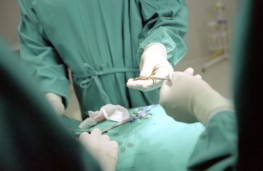Surgical Errors and the ‘July Effect’
12July2013
12July2013

Some researchers say that the month of July is not the right time to schedule elective surgery. That’s because of a phenomenon called the “July Effect,” when surgical error rates reportedly rise as newly graduated doctors start their terms as medical residents.
According to a study published last year in the journal Cancer, Johns Hopkins University researchers analyzed more than 2,900 surgeries at teaching hospitals in the United States and found higher rates of surgical complications during July. Patient mortality rates also rose in July.
Other studies, however, have not found a correlation between surgical error rates and the month of July so the “July Effect” remains a subject of debate.
Regardless of what month a surgery is performed, doctors and health care providers should have safety protocols in place to avoid preventable medical errors. You can take charge of your own safety and reduce your risk of being the victim of a hospital mistake by asking more questions.
When you check into the hospital for surgery, take a list of all your medications, including herbal or natural supplements and over-the-counter medicine, as well as details about your current diet.or about your surgery, who will be performing the procedure, the risk of complications, potential side effects, the medications you’ll be given, and what you should expect during your recovery.
When avoidable surgical errors do occur, those affected may have a right to seek compensation.
The medical malpractice lawyers at Morrow Kidman Tinker Macey-Cushman, PLLC represent victims of medical negligence by doctors, nurses, technicians, and other medical personnel in Seattle and across Washington.